By Sergio Rodriguez Gelfenstein
The upcoming BRICS summit, to be held in Kazan, Russia in October, has aroused great interest in the public opinion, especially since it will take place just a few days before the presidential elections in the United States.
It is unquestionable that this event will mark an important part of the international agenda in the near future, but I think that we must be cautious about what the Summit itself may define and decide. However, without doubting that the BRICS group is an expression of the new world that is emerging and that an alternative, more just and democratic international system seems to be taking shape around it, we must not “get our hopes up” or generate unjustified expectations regarding what may be decided in Kazan.
Until a few weeks ago, there was no clear consensus on the path to follow in terms of the group’s growth. Even today, there are no definitions regarding the requirements that countries aspiring to join must meet, nor is there a founding charter, regulations or operating statutes. The BRICS has no headquarters or general secretariat, nor a defined structure.
Some may say that this is a good thing. My point of view is that it is not. So far, all that is known is that they hold annual summits and that they do not have a “security council” with veto-wielding members.
Similarly, fact is the representation from Africa, Western Asia, and Latin America and the Caribbean (which are excluded from permanent membership in the UN Security Council) makes this body much more representative of the world in the 21st century than in October 1945 when the UN was created with 51 countries (only 4 from Africa, 8 from Asia and none from the English-speaking Caribbean). Today, these regions together comprise 119 of the 193 countries that make up the UN and have no representation in the permanent membership of the Security Council. This shows that the BRICS (where decisions are made by consensus) is already a more democratic and participatory body than any other of its kind that has existed in the past.
The Kazan Summit will have to make decisions for the future. The disappointment of Lula, who proposed and approved Argentina’s entry only to favor his friend Alberto Fernández, should not be repeated. It was a known possibility (and unfortunately turned true) that the coming to power of Javier Milei would prevent the realization of that superficial and emotional proposal.
Although the Russian pro tempore presidency has said that it expects representatives of Latin American countries to attend the BRICS Summit in Kazan, it must be said that attending the Summit is one thing and joining the organization is another. We do not know if, with the frivolity that characterizes him and continuing with his policy of favoring the United States and Europe, Lula – who has not yet recognized President Maduro – will veto Venezuela’s entry, putting China, Russia and the remaining members in a difficult position that will lead them to have to decide between Brazil and Venezuela. It is worth noting that, so far, Brazil is the only BRICS member country that has not recognized President Maduro.
Russia has chosen to invite many countries to the Summit and has been one of the main promoters of the group’s growth. However, Russian Foreign Minister Sergei Lavrov himself has warned that it is opportune to “pause the expansion…”. This could mean slowing down the process, since there is a need for the group to first adapt to the presence of the new countries that joined on January 1. In this context, it is essential that the new members become fully integrated before thinking about a larger number of affiliations. If consensus among five was difficult, it is much more so among 10, and it would undoubtedly be even more complicated if there were a broader membership.
Thus, the pause would be important to establish the mechanisms of operation in view of the risk that a large participation could paralyze the group’s actions, considering that up to 40 countries have requested to join. Therefore, the invitation to be present at the Summit should be understood as a process of rapprochement and evaluation that generates the conditions and mechanisms for increasing membership. It seems that today, for the BRICS, it is more important to organize and consolidate than to grow.
One of the urgent aspects to be defined is the nature of the group. Until now, it has been a forum for debate around the main concerns of the international community, especially in relation to the aforementioned: representation and democracy in international organizations. However, it is also intended to become a mechanism that facilitates economic relations, trade, scientific and technological development, first among member countries, but also with the entire global south in mind.
The idea is to create “new centers for political decision-making of global importance in the countries of the South and East” and in general in those that form the majority of the planet, as reported by Foreign Minister Lavrov at the opening of the BRICS Plus Ministerial Council held in July of this year.
Lavrov said that the states that want to join the BRICS are aiming for “a more just way of life based on the sovereign equality of countries and the diversity of civilizations.” However, he warned that the transition to the new world order will have to go through a historical era that “will be thorny” if one considers that the United States and the West persist in their intentions to maintain their hegemony, preventing the processes of building a multipolar system from being realized in the shortest possible time.
On the contrary, the BRICS, like the majority of humanity, aims to move towards “a more equitable world order, based on the sovereign equality of States and taking into account the balance of forces and interests” and therefore intends to serve as a platform for the exchange of opinions on current issues on the global agenda.
A similar view was expressed by Vyacheslav Volodin, the chairman of the Russian State Duma (lower house of parliament). Volodin said that in the current context, when the United States and Europe are making strenuous efforts to destroy international economic relations, approving sanctions and unleashing conflicts of all kinds, the world is moving in the opposite direction. Firstly, according to Volodin, new growth points have emerged in the world. He also believes that “many states have chosen the path of protecting sovereignty, equal dialogue and mutually beneficial cooperation.”
The Russian parliamentarian explained that within this framework, over the 15 years of existence of BRICS, the group has become one of the largest economic centers on the planet, while its members have improved their positions despite challenges and sanctions. According to World Bank data, Russia has become the fourth-largest economy in the world in terms of GDP in terms of purchasing power parity (PPP), and the first in Europe. China is also the first in the ranking, India is the third, and Brazil has risen to the seventh position. Also, among the top 25 are several new BRICS members such as Egypt (17), Saudi Arabia (18) and Iran (22).
In contrast, the United States has fallen to second place in this statistic, Germany has dropped out of the top five economies in the world, while France and Britain are on the verge of leaving the top ten. Overall, BRICS now accounts for 36.8% of GDP in PPP terms, surpassing the Group of Seven (G-7), the largest capitalist economies on the planet, which only contribute 29%.
On the other hand, the prevailing philosophy of the BRICS Group does not aim at establishing a new hegemonic mechanism on the planet. On the contrary, part of the difficulties for its progress arise from the clear intention of producing open dialogues in which no attempt is ever made to impose any criteria on others. But this requires high levels of organization that allow these dialogues to be held without producing conflicts or ruptures.
It is a question, as Foreign Minister Lavrov said, of considering BRICS “as a bulwark, a prototype of the multipolar world.” Or, in the words of President Putin, one should understand that BRICS is “a key element of the emerging multipolar world order,” including with the perspective of creating its own parliament that operates under the principles of “openness, impartiality and equity.” Along these lines, the parliaments of the BRICS countries should improve the effectiveness of the system of international relations, ensure its democratization and address the issues that threaten the fragmentation of the multilateral trading system and the consequences of global crises.
In this way, the new international order is taking shape. There is no doubt that the Kazan Summit will mark a turning point in a process that must follow the rhythms and deadlines that circumstances themselves impose. Artificially accelerating stages or exerting pressure towards the fulfillment of impossible or unrealistic goals and objectives in the process of enlargement and strengthening of the BRICS group could become a problem rather than a solution.







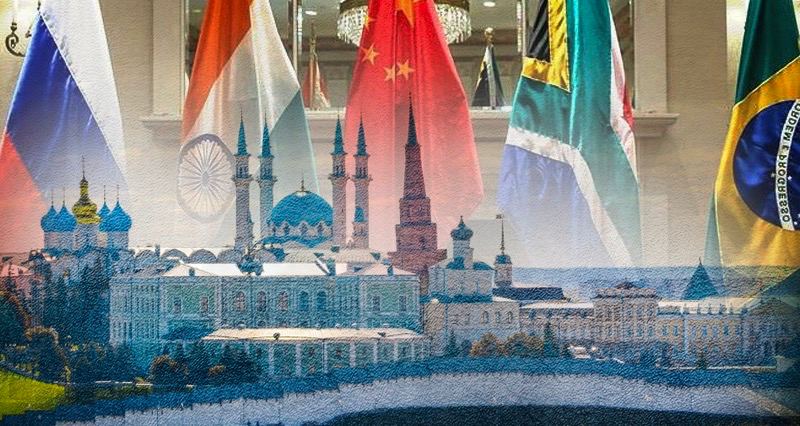
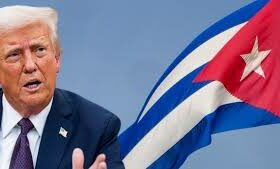
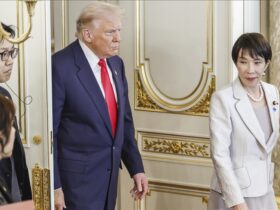
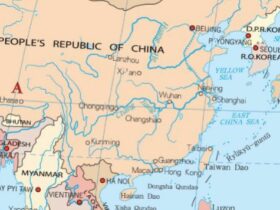

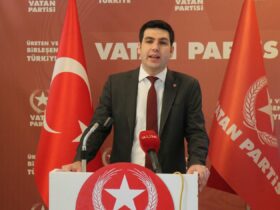
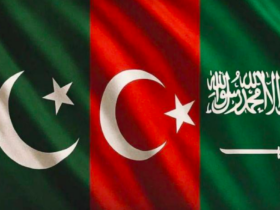
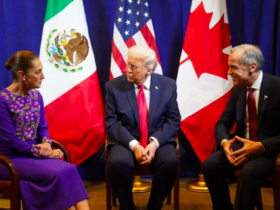


Leave a Reply